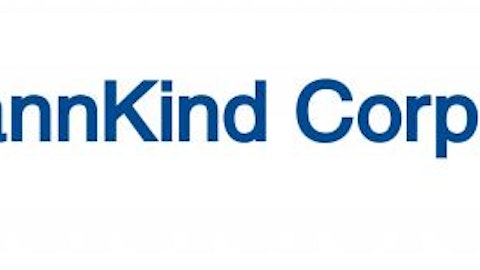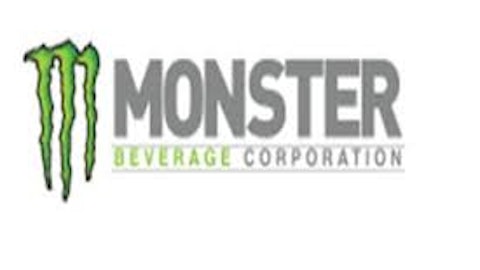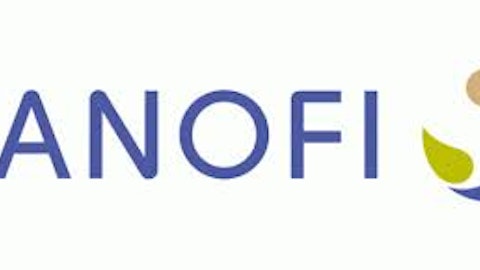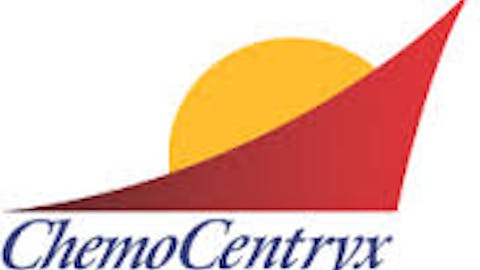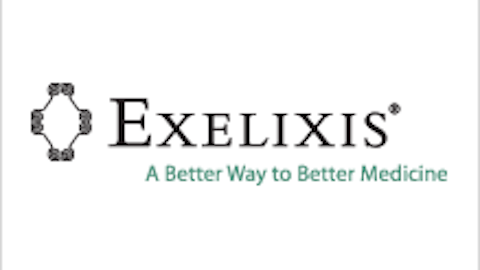Chemical nerve agents have garnered much media coverage recently, but receiving less attention are the companies involved in the development of countermeasures to these and biological agents. One such company is publicly traded and is currently near 52-week highs.
The company in question is Emergent Biosolutions Inc (NYSE:EBS). Until this year, the company had effectively just one product in the market: BioThrax. BioThrax is the only FDA-licensed vaccine available for pre-exposure protection against anthrax infection. BioThrax alone generated $215.9 million in revenues over 2012, of which $215.3 million was tied to a contract with the Centers for Disease Control and Prevention, with the loose change coming from “international and other domestic customer.” The BioThrax contract with the CDC ultimately underwrites Emergent Biosciences’ existence, but the contract is substantial: It stipulates a maximum payment of $1.5 billion through September 2016 on the delivery of 44.75 million doses of the drug. In the first two years of the contract, Emergent Biosciences has delivered 8.9 million doses, leaving 35.9 million still to deliver over the next three years — a tall order without an increase in manufacturing output.
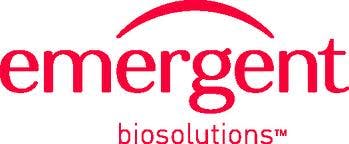
The new “Building 55” is expected to boost BioThrax production, although the company is in ongoing negotiations with the Food and Drug Administration to get the necessary clearance to produce the vaccine. In response to analyst questions, the company was expected to meet FDA requirements for the plant in 2014, and then file for a Biologics License Applications, or BLA, in 2015, but this leaves little time to meet the delivery requirements of the existing CDC contract. With the possibility of a delivery miss, a probable outcome is for Emergent Biosciences to get an extension of the existing CDC contract beyond the 2016 deadline, with revenues likely to jump in 2015 once the plant comes online — assuming that the CDC maintains its need for the vaccine.
Emergent Biosciences is working to diversify itself beyond BioThrax. The company has completed the acquisition of the health care protective products division from Bracco Diagnostics. Bracco Diagnostics manufactures RSDL, a broad spectrum topical skin decontamination product that neutralizes or removes a number of chemical agents. The product is FDA-approved for marketing, and the license comes with multi-year procurement contracts with the U.S. and foreign government agencies. Emergent expects sales of $5 million to 8 million for RSDL until end of year. However, such sales are part of a larger $240 million contract with the Department of Defense to provide RSDL to 2017.
Additional grants and contracts from government and NGOs helped generate an additional $66 million in revenue for 2012.
Competition
Emergent Biosciences has limited competition in the anthrax vaccine market. In terms of competitors, Cangene is coming to the end of a $505 million contract awarded in 2006 to supply the U.S. Department of Health and Human Services with immune globulins aimed at toxins of botulism and anthrax. In 2012, revenues from the contract totaled $32.9 million, although deliveries of anthrax immune globulins has come to an end. More recently, GlaxoSmithKline plc (ADR) (NYSE:GSK) has joined the list of government suppliers with a four-year, $196 million contract to provide the HHS with its inhalation anthrax treatment, raxibacumab, acquired from last year’s purchase of Human Genome Sciences.
Commercial opportunities
Emergent Biosciences is heavily dependent on government contracts for revenues. Its acquisition of Bracco Diagnostics suggests that it’s positioning itself as something more than a government-funded entity. One potential sector the company could easily expand into is first response treatments to poisoning and allergic reaction.
In this area is Pfizer Inc. (NYSE:PFE)/Meridian Medical Technologies. Through subsidiaries, they market a number of products aimed at treating poisoning and allergic reactions. Their product suite includes: Cyanokit, used for the treatment of cyanide poisoning, and EpiPen, which is supplied to Mylan Inc. (NASDAQ:MYL), an epinephrine auto-injector used to treat allergic reactions.
